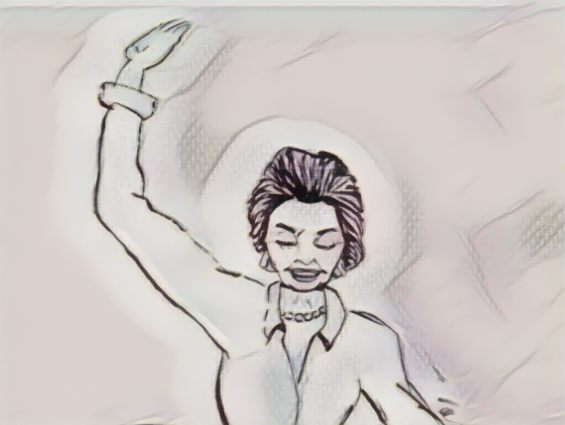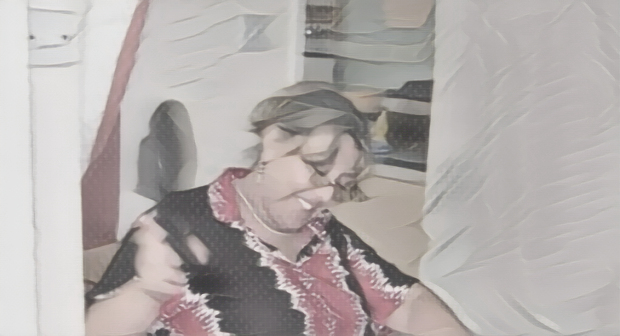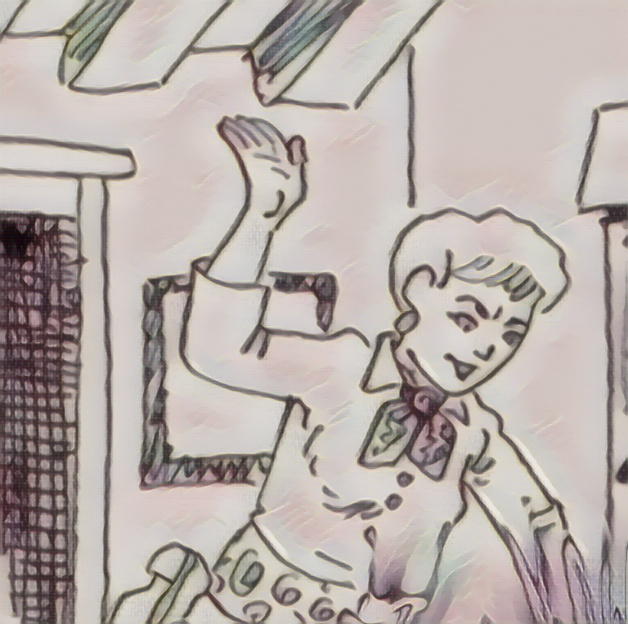(gap: 2s) It is a curious thing to have a twin, and I have often reflected that my brother Peter was, in many respects, the very opposite of myself. Where I was inclined to quiet pursuits and the solace of a good book, Peter was possessed of a most irrepressible spirit, forever devising new schemes and adventures, and filling the house with a commotion that would have tried the patience of a saint.
Our home, a cheerful and well-ordered place, was often filled with the gentle clatter of teacups and the comforting aroma of bread fresh from the oven. Yet, the tranquillity was frequently disturbed by Peter’s exuberance. He would career through the rooms, arms outstretched, imitating the sound of a motorcar, his laughter echoing from wall to wall. My parents, ever forbearing, would remark, “Boys will be boys, my dear.” I would sigh, wishing for a little more peace, though I could not help but admire his inexhaustible energy.
One summer, however, everything was altered by the arrival of a telegram. There had been a bereavement in the family, and my parents were obliged to travel to Australia at once. With heavy hearts, they prepared for their journey, and Peter and I were sent to stay with our godmother, whom we called Aunt Margaret. She was not, in fact, a true aunt, but a distant cousin of Mother’s, and a most distinguished lady—tall, with spectacles perched upon her nose and a manner that was both kindly and authoritative. Her house stood in the midst of the countryside, surrounded by meadows and ancient oaks, and seemed to me the very picture of an English home.
The day of our arrival was one of those golden afternoons that linger in the memory. The sun shone with particular brilliance, and the world seemed to be washed in light. We took luncheon on the terrace, the table laid with spotless linen and shining silver, while the scent of roses mingled with the fragrance of cut grass. My parents embraced us before departing for the airport, and I felt a curious mixture of excitement and apprehension at the prospect of our stay.
Peter, for his part, was quite beside himself with delight. Aunt Margaret’s house was a veritable treasure trove—rooms filled with curiosities, shelves lined with books, and cupboards that invited exploration. He darted from one room to the next, peering into every corner, his laughter ringing out like a bell. I was content to remain at the great oak table in the drawing room, where Aunt Margaret provided me with a sheaf of fine paper and a box of coloured pencils. Drawing was my favourite occupation, and I soon lost myself in sketching the garden, where the roses bloomed in profusion.
But Peter could not be persuaded to sit quietly. “Do try to settle, Peter,” Aunt Margaret called, her tone firm yet not unkind. She encouraged him to draw beside me, but he was far too restless. Time and again, she reminded him to behave, but her admonitions seemed to pass him by entirely. At last, her patience was exhausted, and she administered a few sharp slaps to the seat of his shorts. Peter’s eyes widened in astonishment, and he sat in a rocking chair, sniffling and rubbing his bottom, but it was not long before he was up and about once more, as lively as ever.
The true mischief began after tea, when Peter, emboldened by the novelty of his surroundings, decided to play football in the long corridor. The ball thudded against the skirting boards, and a valuable vase wobbled precariously on its pedestal. Aunt Margaret’s voice rang out, “Peter! That will do!” But Peter, caught up in the excitement, paid no heed. The ball bounced again, and with a dreadful crash, the vase toppled and shattered into a hundred pieces.
There followed a silence so profound that I scarcely dared to breathe. Aunt Margaret entered the corridor, her expression grave but not angry. She surveyed the scene—the broken vase, the football, and Peter, frozen in place, his cheeks flushed with guilt. “Peter,” she said, her voice calm yet resolute, “come with me at once.”
I watched as Peter followed Aunt Margaret into the drawing room, his head bowed and his hands twisting nervously. The room was filled with golden afternoon light, dust motes dancing in the sunbeams, and the scent of roses drifting in from the open window. Aunt Margaret seated herself upon the piano stool, her back straight and her eyes both kind and determined. “You know, Peter,” she began, “that was exceedingly naughty. You were warned, and you chose to disregard my instructions. I am afraid there must be consequences.”
Peter’s lower lip trembled, and he looked as though he might weep. I crept closer, peering through the half-open door, my own heart thumping with a mixture of dread and curiosity. Aunt Margaret took Peter gently by the arm and guided him across her knee. She did not scold or raise her voice, but her manner was firm and assured, as though she had performed this duty many times before.
The room seemed to hold its breath. Aunt Margaret raised her hand and brought it down with a crisp, decisive smack. The sound was sharp, but not cruel—more a reminder than a punishment. Peter gasped, his legs kicking out in surprise, and a single tear rolled down his cheek. Aunt Margaret continued, delivering a series of brisk, measured smacks, each one echoing in the quiet room. Smack, smack, smack, smack, smack! Peter’s cries grew louder, but Aunt Margaret did not falter.
I watched, transfixed, as the scene unfolded. My feelings were in a muddle—part of me felt that Peter had richly deserved his punishment, for he had been most disobedient, but another part of me was filled with sympathy for my brother. Aunt Margaret’s face was set in a look of determined resolve, but there was no anger in her eyes—only a sense of duty and care.
After what seemed an age, Aunt Margaret paused. She adjusted Peter on her lap, ensuring he could not wriggle away, and then resumed the smacking with renewed purpose. Peter’s cries filled the room, but Aunt Margaret’s voice, when she spoke, was gentle. “You must understand, Peter, that actions have consequences. I do this because I care for you, and I wish you to grow up to be a good and thoughtful boy.”
At last, the punishment was concluded. Aunt Margaret set Peter on his feet, his face red and tear-stained, but her arms were open, and she drew him into a warm embrace. “There, there,” she soothed, “it is all over now. You are forgiven, but you must remember this lesson.” Peter nodded, sniffling, and wiped his eyes on his sleeve.
Aunt Margaret then spoke in her most proper voice, “Peter, you are to go to the bedroom prepared for you and your sister, and you will remain there until dinner. After dinner, straight to bed. If I see you outside your room before or after, you will be back over my knee, and I assure you, it will be worse.” Her words were final, and Peter, subdued and sniffling, nodded miserably before shuffling away.
I slipped into the bedroom after him, and found Peter curled up on the bed, his face buried in the pillow. I sat beside him, uncertain what to say. At last, he looked up, his eyes still shining with tears, and managed a small, wavering smile. “I suppose I deserved it,” he whispered. I nodded, and we sat together in companionable silence, the afternoon sun casting long shadows across the floor.
During our fortnight’s stay, Aunt Margaret smacked Peter’s bottom four more times—though he maintains it was only three! What I recall most clearly is that she once smacked him twice in a single day, and after each punishment, his behaviour improved considerably. The house grew quieter, and even I found myself missing his wild laughter just a little.
Looking back, I see that those days at Aunt Margaret’s marked a turning point for us both. Peter learned the value of good conduct, and I learned that even the most mischievous of brothers can be guided with a firm hand and a loving heart. The memory of that sunlit house, the scent of roses, and the echo of Aunt Margaret’s voice will remain with me always—a chapter in my childhood as vivid as any adventure in a story by Miss Crompton herself.








